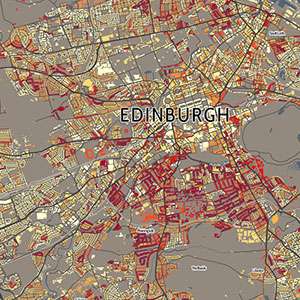Mapping the people of Scotland

Researchers at UCL have mapped the people of Scotland in unprecedented detail.
The project, 'DataShine Scotland', commissioned by National Records of Scotland and the Scottish Government, uses data from Scotland's Census 2011 to show over 1,000 social characteristics for over 46,000 Scottish areas. These cover everything from health and education through to housing conditions and how people travel to work.
The maps also show data unique to Scotland, such as where Gaelic or Scots speakers live, those who list "Church of Scotland" as their religion and how people travel to their places of work or study.
Dr James Cheshire, Deputy Director of the Economic and Social Research Council (ESRC) funded Consumer Data Research Centre (CDRC) comments: "We are keen to show how the power of maps can be used to tell stories about life in the UK. The data used for our Scottish census maps is a small, but significant, proportion of what's being collected by government and industry as they seek to better understand the UK population. It is thanks to the ESRC investing millions into initiatives such as the Consumer Data Research Centre that we are able to get a more detailed impression of the UK data landscape and explore ways in which it can be used to the benefit of us all."
DataShine Scotland is an extension of the ESRC-funded DataShine platform, offering the same functionality as the England and Wales mapping but with additional features to heighten user experience.
The official launch of DataShine Scotland will take place at the Research Innovate Grow Event on Thursday 2 July 2015. Hosted by Research Councils UK (RCUK) this event will be an interactive exhibition showcasing the ways in which the UK remains the best place in the world to do research and develop innovation.
More information: For more information, see datashine.org.uk
Provided by University College London

















